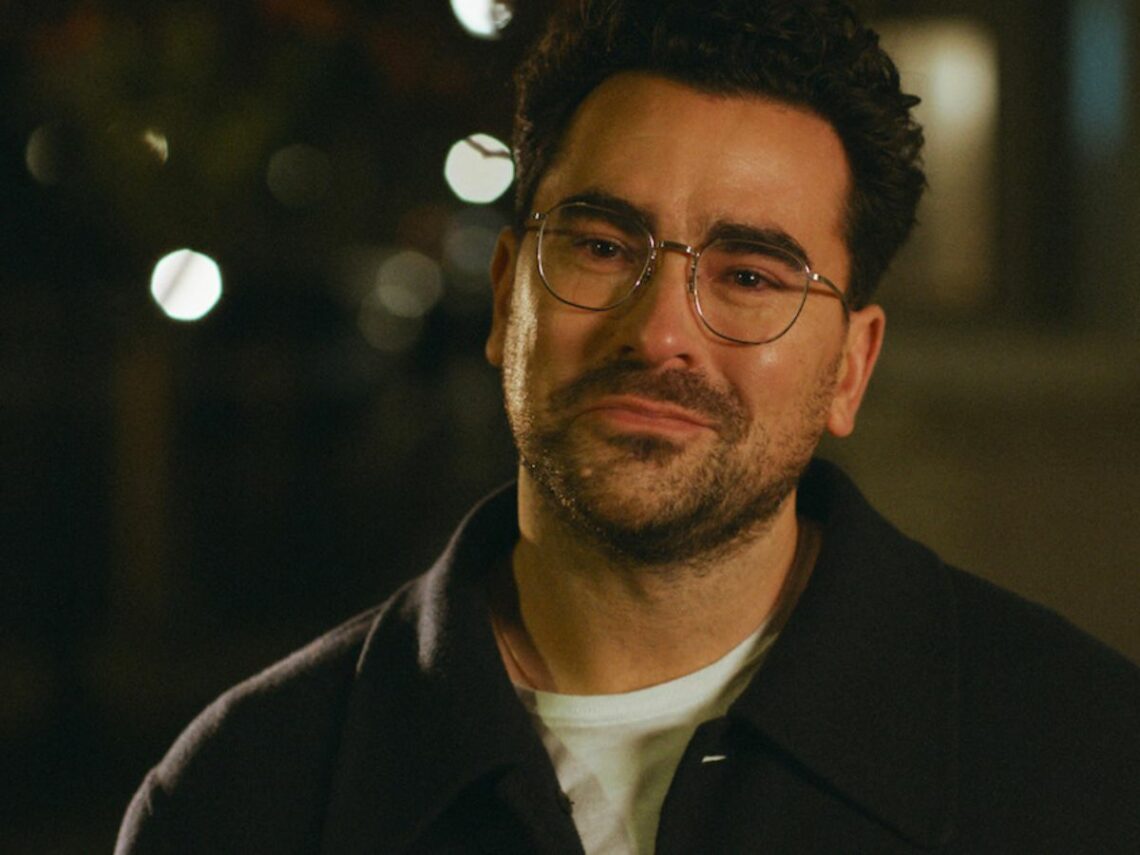Dan Levy charmed us with his comedic genius in Schitt’s Creek. But his bold step into the world of film with his directorial debut, Good Grief, despite being shot wonderfully, falls short of expectations. The film boasts an ensemble cast featuring Ruth Negga, Himesh Patel, and Luke Evans. Despite its promise as a comedy-drama centred on grief, the film struggles with two significant issues: an over-reliance on exposition and underdeveloped characters.
Good Grief follows Marc (Daniel Levy) as he grapples with the sudden death of his husband, Oliver (Luke Evans). Over the course of a year, Marc, accompanied by his friends Sophie (Ruth Negga) and Thomas (Himesh Patel), discovers secrets about Oliver’s life, including a secret relationship and a hidden flat in Paris. The film tries to explore love outside the boundaries of monogamous, heteronormative relationships while Marc tries to make sense of his loss and sense of betrayal.
Despite a promising start, Good Grief stumbles fairly early. The most glaring flaw in Good Grief is its verbosity, which teeters on the edge of navel-gazing. For a film dealing with the intricacies of mourning, Levy leans too heavily on explaining emotions rather than portraying them.
Both Thomas and Sophie—especially Sophie—suffer from being terribly underdeveloped. Though she is a part of the central narrative, Sophie remains a one-note figure in the story. Her entire speech on how sometimes feelings are inconvenient, and you’ve to sit with them in order to make sense of it all is very stirring, especially as it happens mid-air on the massive Ferris wheel, the Roue de Paris. There is something very cinematically cathartic about conversations that happen in those giant death traps we have learned to romanticise since childhood. Seth and Summer had one of their famous heartfelt rendevous in The OC nearly two decades ago. We saw it recently in Three of Us.
You are left longing for more screen time for Himesh Patel’s Thomas, who, along with Negga’s Sophie, was supposed to embody the essence of the found family for Marc. It’s clear that they are great friends, but we have very little insight into their lives. A cameo from The Crown’s Emma Corrin as a young performance artist does add a little extra sugar to the proceedings. There is an ironic remark on her privilege, but there is no such self-reflection towards Marc’s own affluence and how it cocoons him to grieve in two of the most exorbitantly expensive cities of Europe—London and Paris. The imbalance in character exploration leaves a void that even the talented cast struggles to fill.
But what is the most frustrating is Levy’s handling of open relationships—not his stance on them, but how much it is used to create an emotional red herring in the film. It becomes the central conflict in Good Grief instead of being more of a passing glitch.
In Schitt’s Creek, Levy made his stance on open relationships clear. The literal happy ending in the series finale, ‘Happy Ending’, divided fans, some of whom connected the dots Levy had laid out during the entire course of the show, and the others who just couldn’t swallow the bitterness of non-monogamous love.
In Good Grief, with Marc’s feelings of resentment, anger, and sadness at discovering a breach of trust, there lay a rich emotional terrain. However, the exploration of his complex feelings is truncated. Instead, Marc gets casual reassurances, “But he loved you,” and he is perfectly okay with it, after a few steadying breaths, that is.
While it is veritably watchable, Good Grief is made with a lot of narrative indulgences. It leaves you with a sense of shifting melancholy, not quite able to deliver the emotional resonance one would expect from a Dan Levy film.
